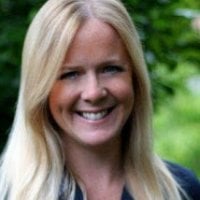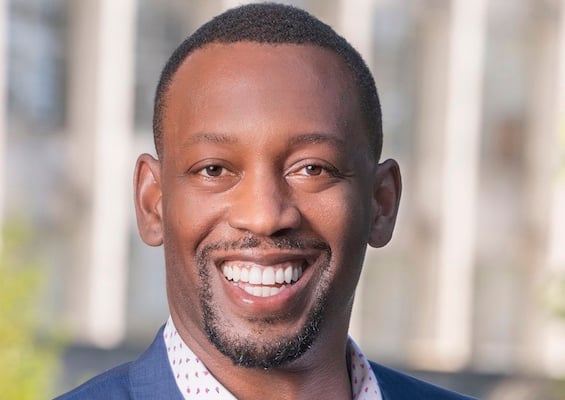For Richard Golfin, III, JD, EMBA 24, health care is not just a business. It is a “fascinating area of life. After all, most of us start and end our lives in a health-care facility. But it is a complex business and one of the most regulated in the U.S. economy.”
Richard knows about regulation. He is the chief compliance & privacy officer, and head of legal at the Alameda Alliance for Health, a public not-for-profit managed care health plan, created by and for Alameda County residents. The organization has more than 400 employees, works with 10,000 physicians, and has 320,000 members, most of them low- or no-income. “We see all of the social disparities across races, genders, and ethnicities and not just in health care, but in housing access, food insecurity, and personal safety,” he said.
Bringing Fresh DNA to Health Care
There has been some adjustment to being back in an academic setting, “What the heck is Slack?” he asked with a grin. “I have more emails and more inboxes than I could imagine. Being in classes with tech folks and consultants, who are up to date, I had to learn the vernacular.”
He is eager to use his learning to find new ways to benefit his older, more repetitive industry. Likening health care delivery to a “dinosaur,” he is excited to be in the classroom with people who can help him fill in the gaps in health care. His MBA studies, he said, give him the opportunity to “do some paleo-engineering, to add fresh DNA to an industry I care so much about. I will have the platform to take that leap, and I’m confident others will take the leap with me.”
One of those gaps is the lack of products for the LGBTQ+ community. “We have health-care plans built around care coordination services tailored for the chronically ill, for folks who are institutionalized. People in the LBGTQ+ community have their own physical and behavioral health needs that are particular to them. Why do we not provide equitable plans for persons in the LGBTQ+ community? This is where we need to go as an industry, community, and country,” Richard said.
He also wants to be part of the change needed to solve ongoing, deep-seated equity issues in health care delivery. In the U.S., as socio-economic status and household income decline, so does access to health care: people have fewer providers, have more trouble getting appointments, and have to travel farther to reach those providers. “When the fence preventing you from getting care is a certain height, we need to make sure that everyone has a ladder that will help them get over the fence,” he said, “and you certainly don’t want a system that raises the fence for everyone while shortening the ladder for some people. That is what we have now. There are opportunities to develop delivery models that bring everyone up to the same level, we just need to widen our focus, to imagine something different.“
Where else could I find such diversity of experience?
That is where being surrounded by so many classmates from different backgrounds broadens and adds to the impact of Richard’s MBA experience. “I’m surrounded by 73 individuals with unique backgrounds, all contributing to my personal and professional development. Where else could I find such diversity of experience?”
Studying more than math and economics
His decision to pursue an MBA grew out of his growing sense of complacency. “I found myself with nothing to do after work. That took me back to a lesson I learned as a kid growing up in South LA: stay busy and you stay out of trouble,” he said. “My MBA is a way to build out my tool shed. I am learning how to run an entire organization, not just the compliance part of it. I’m preparing myself, not just to advise on operations and finances, but to execute in those areas.”
Richard applied to Berkeley Haas knowing that he wanted a big school environment and a school with a top-tier reputation. The Berkeley MBA for Executives program met both those criteria. He is equally gratified to be in a school that shares his beliefs and values. “There is a real commitment to education, to craft, and to the importance of relationships here.”
He is beyond happy that his classes are not just teaching him “a bunch of math”—although he admits to using the knowledge gained in his Finance class to scrutinize his homeowner association’s budget. “In my job, I do not do math, nor economics. It is classes like Trust-Based Relationships and Leadership Communications that really apply to my work. And they have been worth it already.” They also are preparing him to take on a role he believes is intrinsic to leadership: helping the people around him, especially young talent, grow and learn. “I love the idea of being able to curate young talent. I have been fortunate to apply the learning and engagement opportunities discussed in these courses with myself and my teams. We've tried some of the exercises, relied on the material, and I have presented the techniques I was able to obtain in my leadership meetings. That is a remarkable return I did not expect at the onset of the program.”
Interested in having an impact through your own career? An MBA from a top business school can help you grow your network and leadership skills so you can take the next step towards a fulfilling career. 








